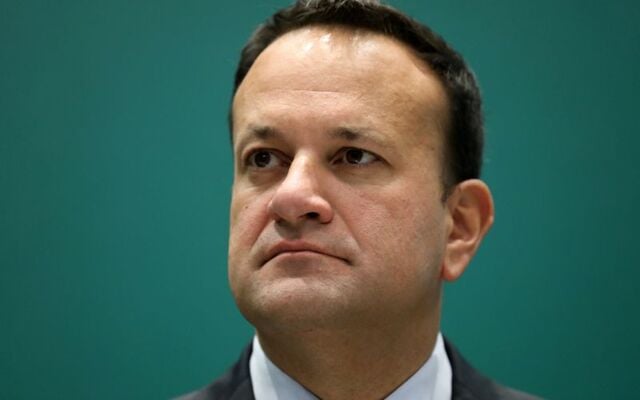Leo Varadkar, Ireland's former Taoiseach, believes that if Nigel Farage, the leader of the UK's Reform Party, were to become British Prime Minister, it would put the discussion of Irish unity to "centre stage."
Varadkar, who resigned as Taoiseach and the leader of Fine Gael in March 2024, made the comments while speaking on BBC Northern Ireland's The View programme, which aired on Thursday night.
"I think it [Farage becoming Prime Minister] would put it centre stage again," the former Taoiseach said about Irish unity.
"And it isn't just because a right-wing, nationalist government in London would want to bring the UK and Northern Ireland away from Europe, it's other things as well.
"Take, for example, we see Reform councils now across England that are preventing people from flying Pride or progress flags.
"I don't think most people in Northern Ireland would like that.
"And I think there are people in Northern Ireland - from both backgrounds or both traditions - that have a liberal and European outlook, and if that's the kind of government they had in London versus a government in Dublin that was very different, it might make them more likely to vote yes to unification."
Varadkar added: "I do want to be very clear about this, it's not something I hope happens [Farage becoming Prime Minister]. I hope it doesn't happen."
The former Taoiseach, who joined the Global Advisory Board of the US-based PR firm Penta Group earlier this year, also discussed the financial implications of a united Ireland.
"Let's just say it even is 5% of GDP. That's about two years' economic growth.
"Would I be willing to forego two years of economic growth for the unification of my island? I would."
Former Taoiseach Leo Varadkar says planning for Irish unity should begin. He's told the BBC that while he doesn't want to see a Reform victory at the next UK general election, if it did happen, it could boost support for Irish unity. Darran Marshall reports. pic.twitter.com/M3FdLrZjFE
— BBC Newsline (@bbcnewsline) June 19, 2025
As per the 1998 Good Friday Agreement, Northern Ireland's Secretary of State has the power to call a border poll "if at any time it appears likely to him that a majority of those voting would express a wish that Northern Ireland should cease to be part of the United Kingdom and form part of a united Ireland."
During his time as a politician in Ireland, which saw him serve as Taoiseach twice, Varadkar was a proponent of Irish unity, though he continues to maintain that the timing isn't right for a referendum. Nevertheless, he continues to call for planning and work to get underway.
"I don't think a united Ireland is inevitable, I think it's something that we have to work towards," he said on BBC Northern Ireland's The View programme this week.
"But I think there are a lot of factors that would suggest that we're on that trajectory.
"Demographic factors, polling, even the most recent numbers showing that a very clear majority of younger people in Northern Ireland want there to be a new united Ireland.
"I think that will carry true, and that's why I think it's something that we should plan for."
In February, an ARINS/Irish Times survey found that while Northern Ireland overall does not support Irish unity, there has been an increase in the amount of support in the North.
34% of people in Northern Ireland would vote for Irish unity if a referendum were to be held, an increase from 30% in 2023 and 27% in 2022.
In the Republic of Ireland, 64% would vote for Irish unity, a figure that's level with 2023 and a decrease from 66% in 2022.
The Irish Times further found that there has been an increase in support for holding a referendum on Irish reunification.
In the Republic of Ireland, 79% of people think there should be a referendum, while 10% are opposed. These responses have been stable over time.
In Northern Ireland, 81% of Catholics support holding a referendum, a figure that's similar to the findings in 2023.
On Thursday's programme, Vardkar said he did not think a united Ireland would "just happen by osmosis or by accident."
"I think has to be worked towards. I think those of us who believe in it have a duty to make the case for it," he said.
"Look at the trajectory, and that is clear. We see it in elections. We see it in opinion polls. We see it in demographics."




Comments